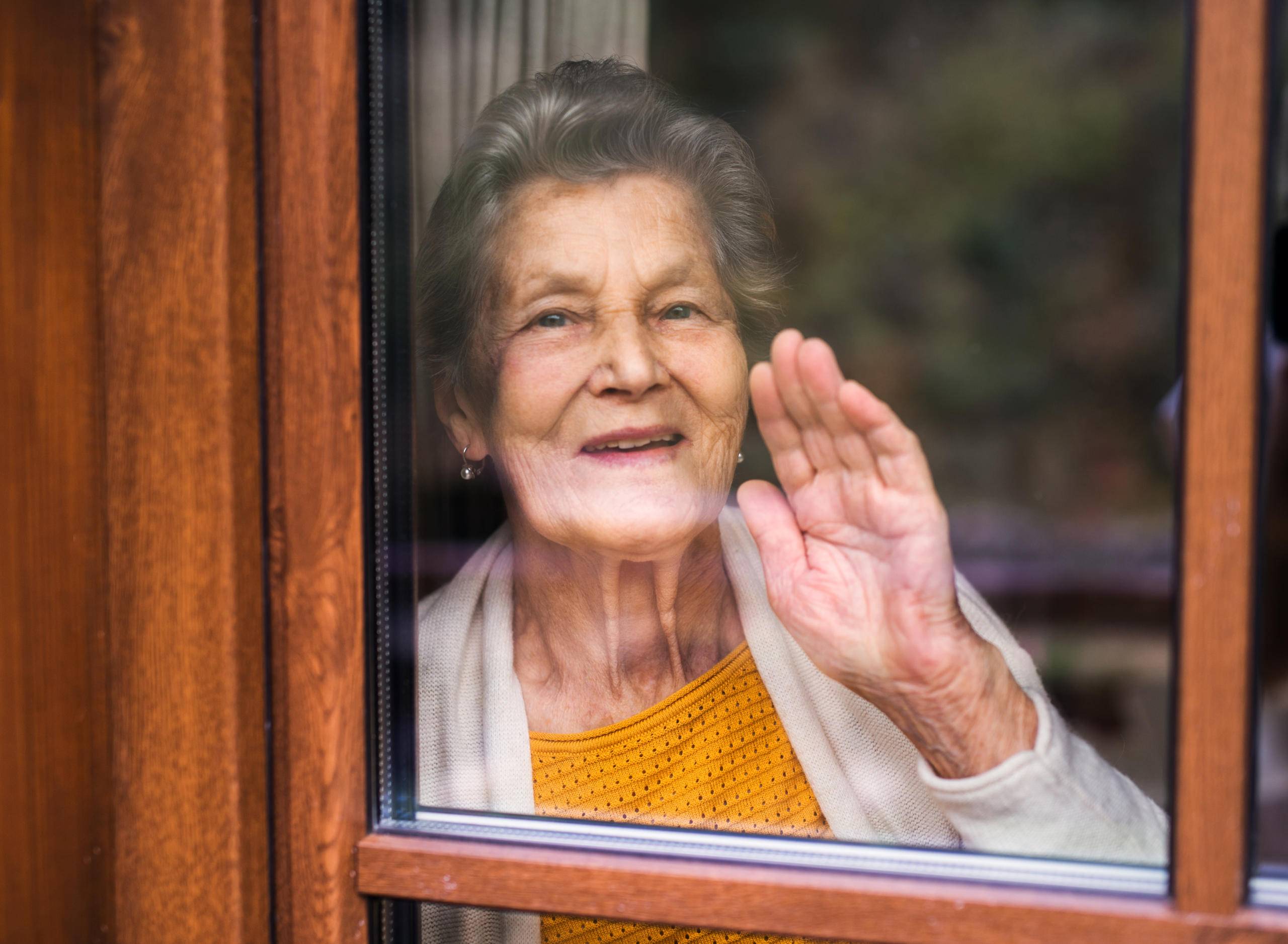
Avalon Culture & Atmosphere
People with Alzheimer’s disease regularly experience disorientation, confusion and anxiety. Creating a positive space at home or at a community can reduce the severity of anxiety and help them feel more confident about their surroundings, experience less confusion, and increase their sense of well-being and quality of life. Reducing distractions and playing soothing music may help, plus, there are many other ways to create an environment to reduce anxiety for your loved one.
What causes anxiety in seniors with dementia?
The disease itself – As a direct result of degenerative dementias like Alzheimer’s, people with dementia gradually experience a loss of their ability to effectively process new information and stimuli. To a person with Alzheimer’s, a moving light or shadow may appear to be a stranger lurking in a corner of the next room. Nearby voices from a television may be interpreted as people conspiring to do them harm.
Medications – Some medications intended to treat Alzheimer’s or other common diseases may exacerbate the existing tendency of Alzheimer’s patients to become anxious or combative.
Environment – To people with Alzheimer’s, even familiar environments can turn from familiar and home-like to foreign and threatening. Add in noises like construction noise, loud music, or nearby voices, or distractions like the light and shadows of nearby car headlights and a person with Alzheimer’s can quickly become overwhelmed with anxiety and become agitated or display disruptive behaviors.
Creating an anxiety-reducing environment
At home . . .
Organize your home and maintain a simple, familiar routine so your loved one with Alzheimer’s feels “at home.”
- De-clutter – especially in walkways to make your home easy to navigate. Remove all rugs.
- Eliminate or reduce shadows with drawn curtains or better window coverage. Consider using light to define doorways.
- Decorate your home in calming colors such as greens and blues.
- Use color to distinguish specific rooms and objects. Make sure there is sufficient contrast between walls and floors.
- Consider adding motion sensitive lighting in areas the person might visit at night like hallways and bathrooms.
- Keep paths clear through bedrooms, common areas and bathrooms.
- Consider adding nonslip materials to flooring and handrails or grab bars in hallways and bathrooms.
- Play soft, familiar music to stimulate parts of the brain that have been unaffected by Alzheimer’s. This may have a calming effect.
- Check the articles listed in Sources for more information and ideas.
In a memory care community . . .
Modern memory care communities like Avalon are designed to look like homes and to instill the sense of a home community rather than an institution. Walkways and living areas are wide, easy to navigate, with directional cues. Our processional staff is trained in dementia care and available 24/7 to provide regular interaction, engagement, and assistance.
Beyond a calming physical environment, Avalon provides:
- Individual care plans that include accommodations for your loved one’s preferences and routines
- Meals served at small group tables to encourage conversation
- Adequate privacy
- Discreet medical care is available at all times
On a supervised outing…
Not all dementia patients are able to or desire to participate in outings outside of their home. However, some may benefit from a short, monitored day trip. A walk in the park, a visit to a favorite coffee shop, or a Sunday afternoon drive are easy ways to add variety to a senior’s day. Still, the stress of getting out in public should be top-of-mind and watching out for signs of stress or agitation is very important. Here are some ways to keep your cherished senior safe, comfortable, and enthusiastic on an outing:
- Plan the unique activity close to home and for a shorter period of time.
- Bring essentials—water, snacks, medications, emergency contacts, important medical paperwork, an extra set of clothes, and any other creature comforts.
- Dress them in comfy shoes and clothing.
- Don’t try to make them remember anything or quiz them on people and places. Just have fun.
If getting out in the world is too overwhelming for someone you love, stage an outing indoors:
- Pitch a tent inside and have a campout.
- Create a backyard ocean retreat with sand, a kiddie pool to splash feet in, smooth shells, and beach balls.
- Perform a coffeehouse concert with songs from their generation.
How does a community setting comfort people with dementia?
Medical research is evolving how we care for those with memory loss challenges by prioritizing the social aspect of a treatment plan. Dementia patients who were included in just one hour each week of human interaction significantly benefited from gathering with others.
Spending time together lessens the agitation that is attributed to dementia, a symptom that lowers a person’s quality of life and increases anxiety. Conversing during mealtime, participating in activities together, or taking brief walks in the backyard boost overall wellness.
Geriatrician at Northwell Health in New York, Dr. Maria Carney, says of people with dementia who are “in a skilled nursing community…can almost be an environment to thrive in if they’re having social interaction,” she said. “We are social beings.”
What are some ways seniors with dementia can stimulate their minds?
Games: At Avalon, we’re devoted to providing healthy ways of invigorating cognition. Here are some ways to keep our residents mentally active and happy:
- Board games
- Video games
- Jigsaw puzzles
- Bingo
- Dominoes
- Checkers
Music: Gentle, soothing music is a wonderful balm for the mind. Not only calming, it stimulates thinking functions and long-term memory. Residents feel more at ease in their surroundings with peaceful and happy sounds. We work hard to create a culture of tranquility at Avalon, and encourage our elders to enjoy musical activities with our visiting music therapists. Here are some simple ways we can add music to our residents’ schedules:
- Singing familiar songs together
- Karaoke
- Playing handheld instruments
- Dancing
- Swaying to the beat
- Clapping
- Snapping or strumming fingers
- Tapping toes
- Sharing memories of favorite songs
Pets: Animals have an incredible power to connect with practically anyone, especially seniors. For those who experience increased cognitive isolation, even a short time with a pet can improve relaxation and lower stress levels. Pet therapy is highly valued at Avalon. When otherwise quieter residents brighten up at the sight of a dog’s soulful eyes or just melt into a fluffy hug, the joy we feel is priceless. We’re always thinking of new ways for our seniors to enjoy the companionship of animals:
- Hosting pet therapy events
- Extending an invitation to well-behaved pets to visit us
- Giving residents opportunities to snuggle with gentle animals or play fetch
- Watching movies about inspirational animals or nature shows
- Giving treats to their fur friends
Talking: A 2022 study found that talk therapy may be a natural way to alleviate depression in people with dementia. Having therapists available to nurture conversation is a wonderful way to engage with elders but also boost dispositions. Sometimes prompted chats with seniors about their childhood memories or stories of photographs in an album can truly work wonders for their quality of life.
At Avalon Memory Care, we pride ourselves on the sense of home and community we create for our residents. Every home is designed to support and comfort our memory care residents. If you are looking for a memory care home in Dallas, Houston or Arlington for your loved one, you can find out more about our area locations by calling (972) 713-1383.
Sources:
https://www.healthline.com/health-news/social-interaction-can-help-dementia-patients
https://www.dementiacarecentral.com/caregiverinfo/handsoncare/socialization/
https://www.seniorservicesofamerica.com/blog/15-meaningful-activities-for-dementia-patients
https://www.sciencedaily.com/releases/2022/04/220425212053.htm
https://www.samvednacare.org/blog/2018/03/10/6-tips-for-organizing-outings-for-dementia-patients/
See More Articles
-
Visiting Your Aging Parent With Memory Loss at Avalon Memory Care
As a loving son or daughter, you naturally want the best of care for your senior parent. The compassionate assisted living caregivers at Avalon Memory Care want you to know that while your parent is living with us, he or she will receive nothing less than respectful, loving care within our comfortable, safe, and fully-staffed
-
Celebrating New Year’s Day in Memory Care
Families often find that celebrations with their loved ones in memory care are easier when they embrace new traditions. For instance, it may not be practical to expect your loved one to stay up until midnight on New Year’s Eve. Instead, consider throwing a New Year’s Day celebration, complete with a countdown to the first
-
Understanding Parkinson’s Disease and Dementia
Parkinson’s disease is an incurable neurological disorder, with progressively worsening complications. Perhaps the most well-known symptom of Parkinson’s is a hand tremor, but it can also cause speech changes, muscle rigidity, and impaired posture. Eventually, as the disease progresses, more than half of all individuals with Parkinson’s will require dementia care. This particular type of
Testimonials
Downloadable Resources
We Are Avalon
Discover the heart of our community; download ‘We Are Avalon’ to get to know our dedicated team and our commitment to providing a warm, family-like environment.
Transitional Care Guide
If you’re considering a transition, we’re here to help; download our Transitional Care Guide for compassionate guidance through each step of the process.
Schedule a Tour
Visit one of our 30+ campuses and experience our unique approach to memory care.












